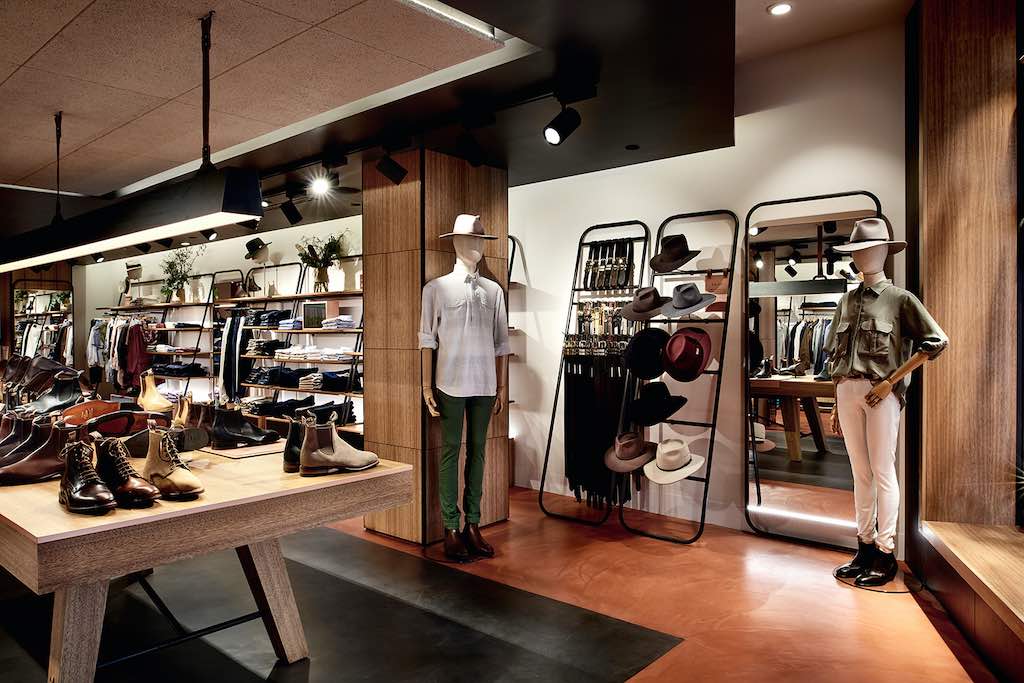Sustainability is the word on everyone’s lips in retail at the moment, both online and off. In the fashion world, major online retailer The Iconic has launched a new filtering system for shoppers based on the sustainability credentials of their products. They’re calling it Considered, and rightly so – customers can browse products with credentials such as Eco-Production or Animal Friendly, refining the options presented to them by these criteria. This initiative gives shoppers the chance to put their money where their mouth is, directly and deliberately aligning their purchases with their values.
This development comes hot on the heels of many bricks and mortar retailers catering to consumer demand for more eco-conscious retail environments by stocking more environmentally-friendly wares, going paperless in stores or reducing packaging and plastic bags. But, at Storepro, we think that sustainability in a retail environment can begin a lot earlier…
Sustainability in shopfitting
Long before the doors open to customers, sustainability can be a driving force and key consideration for retailers planning a new store. With guidance, sustainability principles can be embedded right from the design stage and carried all the way through construction and fit out.
In this first instalment of our two-part blog series, we’ll outline the ways in which shopfitters can factor sustainability considerations into our processes and projects.
- Prioritise sustainability from the design and planning stage
An experienced shopfitting team understands how to incorporate sustainability considerations from the design and planning stage of a project. This means that all decisions about procurement, methodology, construction, materials, resources and equipment in stores can be made with environmental impact in mind. For example, the design of a retail outlet can incorporate energy efficient heating and cooling systems and ways to maximise natural light and capitalise on natural shade. Solar or LED lighting systems can be installed to lower power consumption, with timers or sensors so they’re not running at unnecessary times. Water-saving plumbing features are another great option, as are zoned heating, cooling and lighting systems, temperature controls and devices to monitor and manage energy use in a retail environment.
- Consider sustainability of materials
Another way that shopfitters can facilitate sustainability in a project is to consider carefully the materials that are used. This could mean sourcing natural or raw materials that don’t require extensive processing, like limestone that can be converted into cement powder for concrete floors or timber from renewable sources. Finding other materials that are obtainable locally also helps by reducing the environmental impact of transportation. Metal ductwork can be a more environmentally friendly choice than fibreglass, and water-based low VOC (Volatile Organic Compound) paints are preferable to solvent-based options. These non-toxic paints can be used on floors, walls, cabinetry and other display units, and they contain fewer (if any) pollutants, improving air quality. For more information, here’s a handy guide on which paints fall into this category.
- Reuse, recycle, re-purpose materials
At RM Williams fit-outs across Australia and New Zealand, the Storepro team was able to salvage and repurpose timber from demolished buildings for areas such as Fitzroy, Melbourne. The timber was then reincorporated into the new stores. Not only did the retailer get the opportunity to preserve a historic piece of the local community they were seeking to establish themselves in, they also saved on the cost and environmental impact of sourcing, milling and transporting the timber from elsewhere. Recycled timber also communicates an eco-conscious visual identity in line with the image many contemporary brands want to portray. Other recycled materials that can be sourced for use in shopfitting include old fixtures, metal (including recycled steel) and bricks.
Stay tuned for Part 2! In the meantime, you can call and chat to us about how you can factor sustainability into your next retail project from the get-go by calling Storepro on 1300 922 201 or emailing reception@storepro.com.au.

